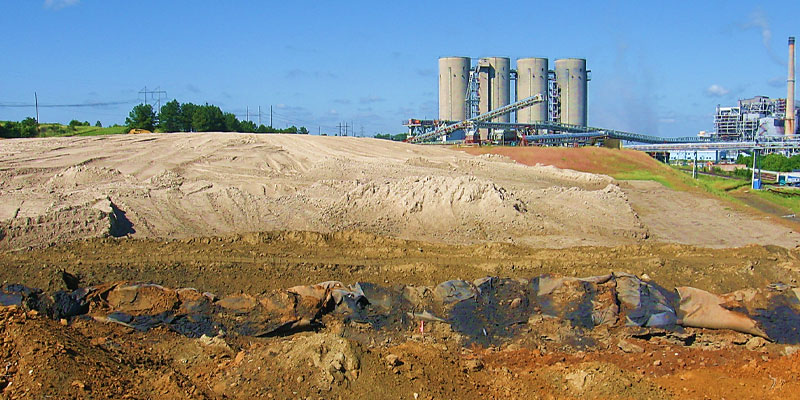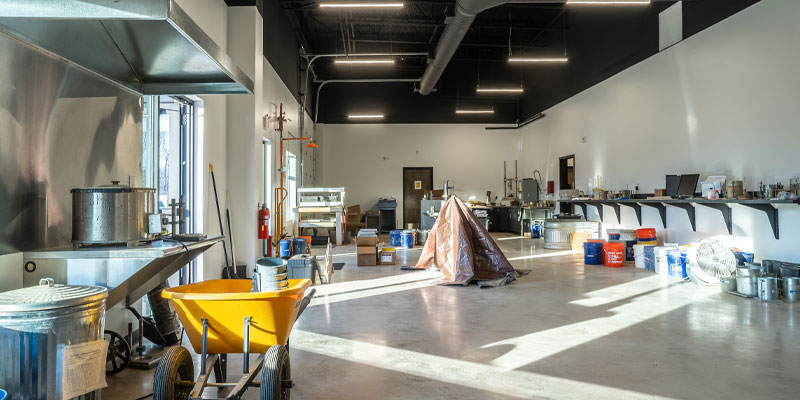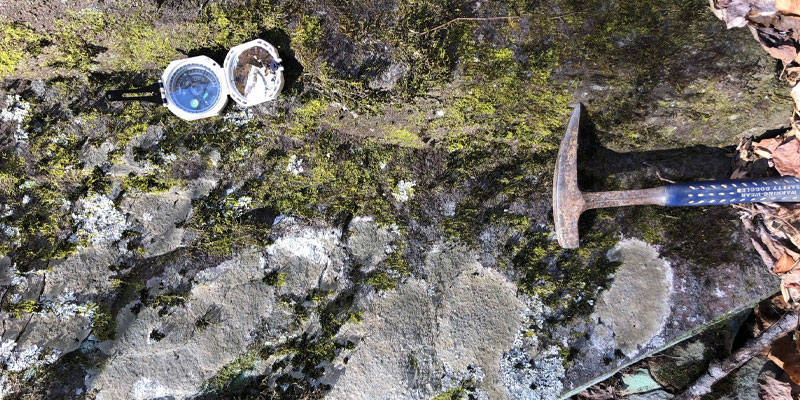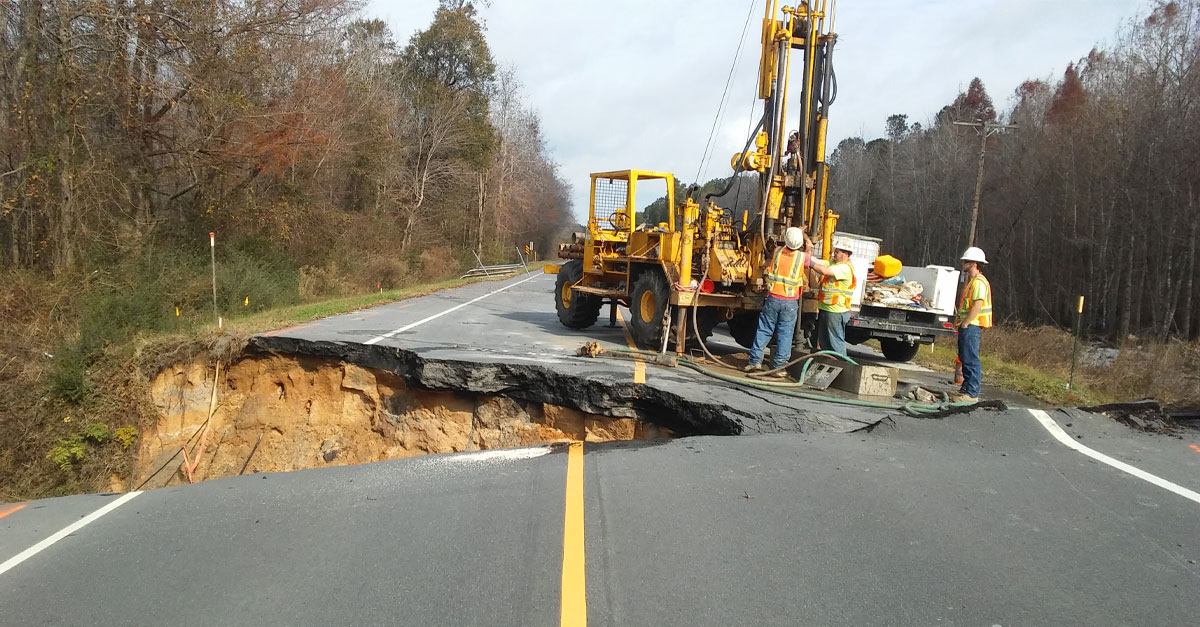When I began studying geology at UNC, my goal was to find career opportunities in petroleum exploration or mining operations since those industries paid the highest salaries.
However, working for those industries would likely require me to move out west or the northeast where those operations are active, which would be far from my friends and family. As graduation approached, I began looking for a career path outside of economic geology.
A Chance Encounter
In April 2015 (a month before my graduation), I attended an event hosted by AEG (Association of Environmental & Engineering Geologists) where local geologists speak to geology students about potential career options. Brad Worley spoke at that event and introduced himself as a Professional Geologist working at Summit, a company based out of Hillsborough. Having lived in Hillsborough for most of my life, I had no idea what a geologist could possibly be doing for work in this town.
He explained his role in the Geotechnical Engineering industry, an industry I had never heard of. At first, I was interested in engineering geology because it would allow me to use my degree while living wherever I chose. That changed as Brad continued with his presentation. He discussed the country’s aging infrastructure and geotechnical engineering’s role in improving this infrastructure. To be part of an essential industry was very appealing to me. I got Brad’s contact information at the event.

I didn’t start with Summit immediately after graduation, though. I had already agreed to a six-month internship with the US Geological Survey as a marine biologist technician in Fort Lauderdale. After I completed the internship, I returned to Chapel Hill in December 2015 and reached out to Brad to see if Summit was hiring.
Getting the Call
After a month of waiting, there was an opening in Summit’s soil laboratory. Though it wasn’t what I was looking for, Brad recommended I apply to the lab position since experience in the laboratory would help me better perform field classifications of soils as a geotechnical geologist. After I applied, I didn’t hear from Summit for a couple of weeks and figured I had lost the opportunity.
Don Dewey called on a Sunday afternoon to schedule an interview. He apologized for calling about work business on a Sunday, but I didn’t care at all. I was happy to be able to leave my part-time job at a grocery store and begin my career. I interviewed the following day and began the job in February 2016.
A Surprising First Day at Summit
I had no experience working with soils in school and wasn’t familiar with the tests I needed to perform in the lab, but I wanted a foot in the door at Summit and was determined to learn. My goal was to start in the lab; then I would eventually work my way into the Drilling/Geotechnical department and become a geologist.
It didn’t take long. On my first day after orientation, I was called out of the lab to be a substitute Driller Helper (this role provides assistance to the lead Driller on geotechnical drill rigs) for the Geotech department. Over the next few weeks, I was a regular stand-in as a Driller Helper, although my main duties were still in the lab.

Since my predecessor in the lab had left before I started, my first few weeks involved a lot of self-teaching. I soon hit a wall. The instruction standards were not well written and there are only so many YouTube videos related to soil tests. Eventually, two of my coworkers, who used to work in the lab but since moved on, took time from their projects to make sure I was performing lab tests properly. I was grateful for the opportunity to learn from their firsthand experience. From there lab testing became a lot easier but it wasn’t where I was going to stay.
Moving from the Lab to the Geotech Field
In April of that year, the Geotech department started two large projects and needed an additional field geologist. Thanks to my exposure to drilling activities as a backup Driller Helper, I was moved into the position.
What was originally supposed to be a year-long time frame to switch departments was shortened to less than two months thanks to the timing of those two projects. That is how I ended up in the position I hold, and enjoy today.
Why My Current Job Rocks
One of the things I enjoy most about my current position is the variety between each workday and each project. On any given day, I’ll write proposals, recon sites for drill rig access, manage field investigations, draft boring logs, and write engineering reports—all while occasionally going back to my Summit roots by standing in as Driller Helper or helping out in the soils lab.

The Geotech department wins projects all over the state so a lot of travel is involved in this position. Some of my favorite projects have been out-of-town projects in Mooresville, Asheville, and Boone. Although living out of a hotel gets old, spending free time between workdays going to new restaurants, fishing, hiking, or skiing makes travelling for work enjoyable for me.
Even for local work, each project site is different, and each one presents its own logistical and geotechnical challenges. For example, a project that only involves drilling soil borings in a flat, open field will present significantly different challenges than coring rock through river boulders on a bridge 50 feet above the ground. That kind of variety between sites in addition to the different locations across the state will keep this job from ever becoming monotonous.
I’m fortunate to have stumbled on geotechnical engineering, and it turned out to be a great career path for me. Having grown up in and currently living in Hillsborough, I’m proud to tell friends and family that Summit was instrumental in projects that helped our hometown, like the local Riverwalk, new bridges, as well as schools and hospitals in the community. It’s great to be a part of the construction process, but it also helps that I like the people I work with. Our drill crews, other geologists, engineers, and CMT project managers always make work entertaining. I’m also carrying on the family tradition by working in this industry. My father is an engineer, my mother an architect, my uncle and grandfather started their own architecture firm, and another uncle works in land development.
Coming Around Full Circle
Now, I give talks at the same Visiting Professionals events where I found out about geotechnical engineering. At these events, I explain the need to be flexible with your roles at a company when you first start out. There may not be a straight path to reaching your goals, and your goals may change as you continue through your career. Flexibility in being willing to accept roles other than my desired Geologist position at Summit helped me get to the position I ultimately wanted to be in.
